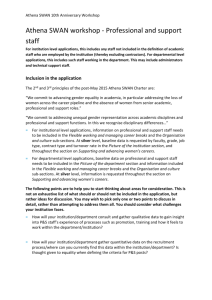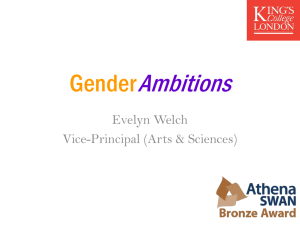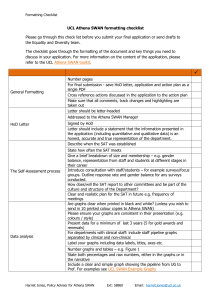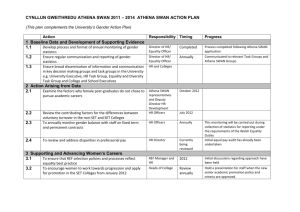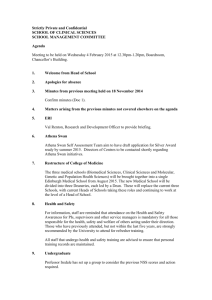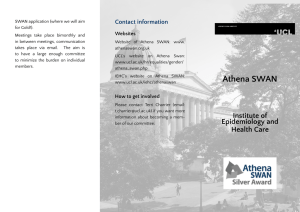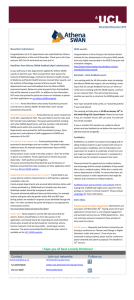Athena SWAN: Guidance for Heads of Departments
advertisement
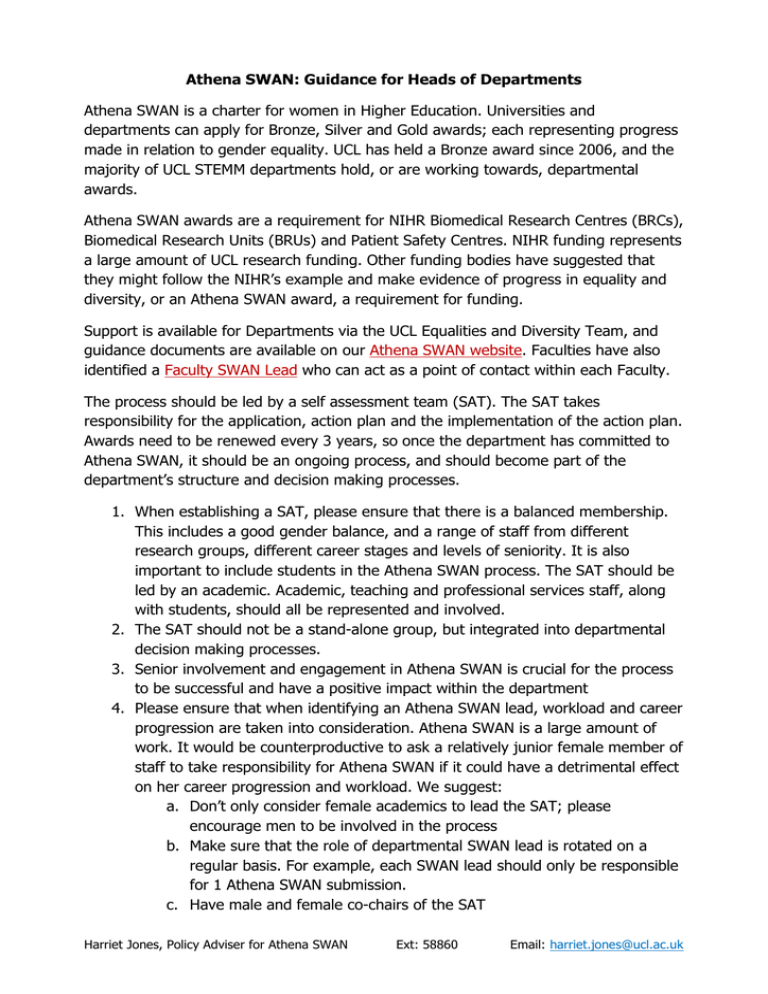
Athena SWAN: Guidance for Heads of Departments Athena SWAN is a charter for women in Higher Education. Universities and departments can apply for Bronze, Silver and Gold awards; each representing progress made in relation to gender equality. UCL has held a Bronze award since 2006, and the majority of UCL STEMM departments hold, or are working towards, departmental awards. Athena SWAN awards are a requirement for NIHR Biomedical Research Centres (BRCs), Biomedical Research Units (BRUs) and Patient Safety Centres. NIHR funding represents a large amount of UCL research funding. Other funding bodies have suggested that they might follow the NIHR’s example and make evidence of progress in equality and diversity, or an Athena SWAN award, a requirement for funding. Support is available for Departments via the UCL Equalities and Diversity Team, and guidance documents are available on our Athena SWAN website. Faculties have also identified a Faculty SWAN Lead who can act as a point of contact within each Faculty. The process should be led by a self assessment team (SAT). The SAT takes responsibility for the application, action plan and the implementation of the action plan. Awards need to be renewed every 3 years, so once the department has committed to Athena SWAN, it should be an ongoing process, and should become part of the department’s structure and decision making processes. 1. When establishing a SAT, please ensure that there is a balanced membership. This includes a good gender balance, and a range of staff from different research groups, different career stages and levels of seniority. It is also important to include students in the Athena SWAN process. The SAT should be led by an academic. Academic, teaching and professional services staff, along with students, should all be represented and involved. 2. The SAT should not be a stand-alone group, but integrated into departmental decision making processes. 3. Senior involvement and engagement in Athena SWAN is crucial for the process to be successful and have a positive impact within the department 4. Please ensure that when identifying an Athena SWAN lead, workload and career progression are taken into consideration. Athena SWAN is a large amount of work. It would be counterproductive to ask a relatively junior female member of staff to take responsibility for Athena SWAN if it could have a detrimental effect on her career progression and workload. We suggest: a. Don’t only consider female academics to lead the SAT; please encourage men to be involved in the process b. Make sure that the role of departmental SWAN lead is rotated on a regular basis. For example, each SWAN lead should only be responsible for 1 Athena SWAN submission. c. Have male and female co-chairs of the SAT Harriet Jones, Policy Adviser for Athena SWAN Ext: 58860 Email: harriet.jones@ucl.ac.uk
